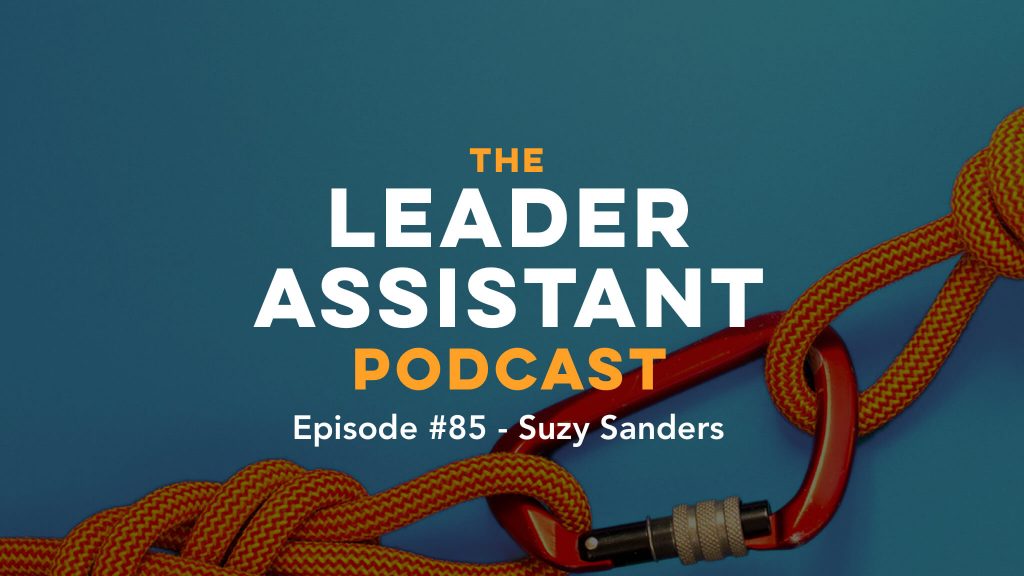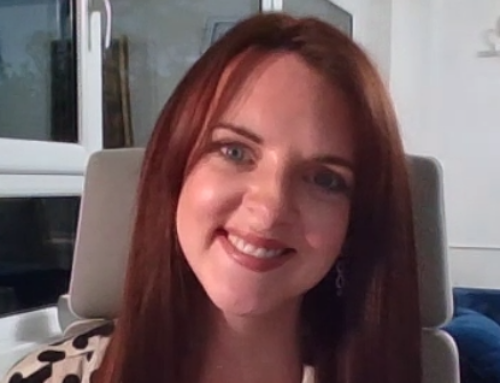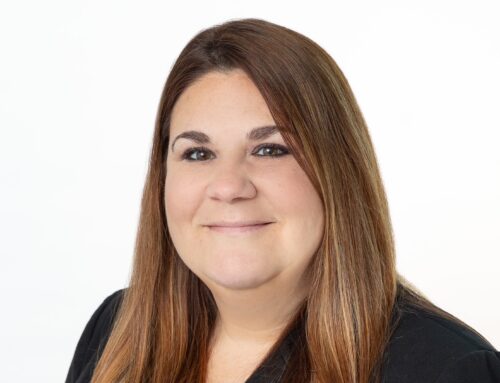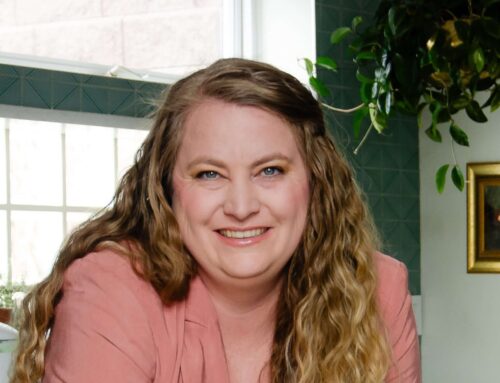Suzy Sanders has many years of experience as an executive assistant, including at the board level within a global recruitment company. She’s currently founder of Alchemy Virtual Assistance, an award winning VA firm.
Suzy shares a bit about her experience with burnout, what it’s like running a remote business with her husband (with kiddos at home), how to stay connected and engaged as a remote team, tips on hiring an assistant, and what it takes to be a rockstar virtual assistant.
LEADER ASSISTANT MEMBERSHIP
Check out the Leader Assistant Membership monthly subscription for ongoing training, coaching, and community.
LEADERSHIP QUOTE
I want to be in the arena. I want to be brave with my life. And when we make the choice to dare greatly, we sign up to get our asses kicked. We can choose courage or we can choose comfort, but we can’t have both. Not at the same time.
– Brene Brown
CONNECT WITH SUZY AND ALCHEMY VA
- Suzy’s LinkedIn
- Alchemy VA’s Instagram, Twitter, and Facebook
- Alchemy VA’s Website
ABOUT SUZY
Before she embarked on the roller-coaster ride of self-employment Suzy was an Executive Assistant at Board Level within a Global Recruitment Company. Her diplomacy and discretion coupled with her innovative and proactive approach enabled her to flourish within such a demanding, fast paced environment.
In addition to many years as an Executive Assistant, Suzy has over a decade of practical hands on experience within Office Management and Administration. She’s operated as an integral part of HR, Projects, Events, Marketing, Sales and Hospitality teams. Spanning across several industries including Recruitment, Service Delivery and Technology.
Suzy’s life, outlook, mind-set and focus shifted dramatically when she became a mother.
She came to realize that her true passion lies in helping people, that she’s driven by making a difference. This thinking, combined with the new-found strength and determination motherhood bought, caused Suzy to rethink her career. In 2016 she founded Alchemy VA and hasn’t looked back.
About Alchemy Virtual Assistance: Alchemy Virtual Assistance is a multi-award winning VA business based in Northamptonshire, UK. Alchemy has grown organically with virtually all its clients coming from word of mouth or personal recommendations.
Flexibility, fun and a strong work ethic are all at the heart of the business. Because Alchemy is a truly ‘virtual’ business they’re not restricted by location and proudly support a diverse range of businesses both locally and nationally.
THE LEADER ASSISTANT BOOK
Download the first 3 chapters of The Leader Assistant: Four Pillars of Game-Changing Assistant for FREE here or buy on Amazon here.
JOIN THE COMMUNITY
Join the Leader Assistant Slack Community here, or the Facebook Group here for bonus content and to network with other assistants who are committed to becoming leaders!
SUBSCRIBE
Subscribe to The Leader Assistant Podcast so you don’t miss new episodes!
You can find the show on Apple Podcasts, Spotify, Google Podcasts, Pandora, and Stitcher.
Join my email list here if you want to get an email when a new episode goes live.
LEAVE A REVIEW
If you’re enjoying the podcast, please take 2 minutes to rate and review the show on Apple Podcasts here. Each review helps me stay motivated to keep the show going!
—
EPISODE TRANSCRIPT
Suzy Sanders 0:00
I’m Suzy Sanders and today’s leadership quote comes from Brene Brown. I want to be in the arena, I want to be brave with my life. And when we make the choice to dare greatly, we sign up to get our asses kicked. We can choose courage, or we can choose comfort that we can’t have both not at the same time.
Podcast Intro 0:21
The Leader Assistant Podcast exists to encourage and challenge assistants to become confident game changing leader assistants.
Jeremy Burrows 0:33
Hey, friends, thanks for tuning in to Episode 85. I just wanted to let you know that I have a lot of interviews in the hopper. What I did was I originally bulk recorded dozens and dozens of interviews and realized after a few months that I wasn’t able to publish them as quickly as I recorded them. So I’ve got several interviews coming up that I actually recorded a year ago or even a little bit longer. So I’ve learned my lesson to bulk record in smaller bulks, if that makes sense. And I’m going to be publishing out all these episodes over the next few months. And then I’m not recording new episodes until I get a little closer to the end of this batch. So that I can record and publish in a shorter timeframe so that hopefully things are a little more live and timely. But that said all of these interviews that I’m publishing, still have timeless wisdom from my guests, and valuable content that I think you’re going to enjoy. So anyway, just wanted to give a heads up. If you hear references or notes from guests or myself, a lot of these were pre COVID interviews. A lot of these were even in 2019. So just thanks for your patience as I slowly edit and publish these one a week. And hopefully you’re enjoying them. And if you are enjoying them. Please do subscribe and leave a review on Apple podcasts. I appreciate you listening and appreciate your support. So let’s jump right in and check out the show notes at leaderassistant.com/85 For this week’s episode links. Hey, everyone. Thanks for tuning in to The Leader Assistant Podcast. It’s your host Jeremy Burrows and today I am speaking with Suzy Sanders, the founder of alchemy virtual assistants. Hey Suzy, how are you?
Suzy Sanders 2:36
Hi. Hi, Jeremy. I am very well. Thank you. How are you?
Jeremy Burrows 2:40
I’m doing well. Just waking up in St. Louis, Missouri. What? What part of the world are you in?
Suzy Sanders 2:45
I’m in Northamptonshire in the UK. And yeah, it’s early afternoon now. So
Jeremy Burrows 2:51
awesome. So what was your very first job? And what did you learn from it that you still use today?
Suzy Sanders 2:58
My very first job. When I was still at school, I did work experience in a pet shop, which has no context to what I’m doing now. But I was. I’m a nature lover. I’ve always loved animals. And I think one of the first one of the most standout things about that job was I kind of realized even at quite a young age, I’ve got quite a strong work ethic. And I didn’t really kind of realize that I could get satisfaction from work. So piecing that together. And you know, I’ve got my my parents to thank for that. But I think you know that work ethic has only ever got stronger. And that was the first time I was really aware of it.
Jeremy Burrows 3:38
So then what kind of trajectory did your career have? And what how did you become an EA? And why?
Suzy Sanders 3:46
Ah, well, I I kind of bounced around a lot of different jobs. Because I was leaving college or was unsure about what I wanted to do. So I think like quite a lot of people I kind of ended up in the EA role. By chance, perhaps it wasn’t at the time and intentional choice, but I’m really thankful for it and and I had always worked for kind of smaller companies where I could get involved with loads of different functions. And my first co pa role was in a lot more large corporate companies. So I think it was definitely the the variety that drew me. And at the time, I think it was the love of working for the magic of working for a large company as well. It was a bit kind of corporate and polished. And I think I kind of had an always worked in quite small family run companies that kind of appealed to me a little bit.
Jeremy Burrows 4:45
So do you have any funny or crazy or, you know, interesting stories of times when you save the day in the big corporate job?
Suzy Sanders 4:56
Oh, good question. And I’m gonna say yes, there are a lot But my last EA role I was supporting the chief HR officer, so I wouldn’t be able to share any of them.
Jeremy Burrows 5:09
Probably good answer for your your reputation, right?
Suzy Sanders 5:13
Yeah, not worth not worth risking sharing any stories there. So maybe if you buy me a couple of gyms, I’ll tell you some but
Jeremy Burrows 5:20
nice. So what about what about mistakes? Was there any mistakes that you made that kind of bigger mistakes that you really learned from? Oh,
Suzy Sanders 5:29
yeah, absolutely. I think for quite a large part of my adult life, I’ve always been terrified of making mistakes. And, you know, it’s not till I started up as a VA and starting my own business that I realized that actually, this is such a good thing. And everybody makes them. And I think I think the biggest mistake that I’ve ever made is, and this is probably quite well, it’s not very specific, but I think not listening to my instincts, on a lot of stuff. And again, I’m not gonna go into too many details, but just generally, broadly speaking, you know, when you know, something in your gut isn’t feeling right, kind of listened to that, I think that’s probably the biggest mistake I’ve made as an assistant.
Jeremy Burrows 6:18
So tell us about your transition to be from that kind of corporate pa world to becoming a virtual assistant.
Suzy Sanders 6:28
Yeah, okay. Well, for me, my, my little boy, kind of sorted everything for me. He was born in 2015. And I was really fortunate, it took some time out to transition into motherhood, and it completely changed me. It wasn’t prepared for how much it would. And, you know, and I felt that when I went back into that corporate environment, I felt that I wasn’t the same person anymore. And obviously, my priorities have changed, my focus has shifted. And, you know, I’m consider myself quite fortunate had an incredibly great, wonderful pregnancy had a really empowering birth. And without being too corny, I kind of felt quite empowered by that. And I thought, I always had this kind of burning desire to kind of do my own thing and start my own business. And, and I thought, well, if I’m gonna do it, now’s the time. And so IKEA kind of long story short, took the plunge. I first came across the concept of a virtual assistant when I was on maternity leave. So I spent a lot of time doing some reading and research. And you know, I was up all night anyway. So it was a perfect time to start kind of gathering my thoughts and planning what I was going to do, and yeah, I took the plunge left, left my job and focus on the business.
Jeremy Burrows 7:52
So how did you get your first client?
Suzy Sanders 7:57
My first client came to me, she’s, we still work together. She’s incredibly dear friend of mine now, actually, but she came to me through one of my friends who had confided in and just said, Listen, this is what I’m thinking about doing. And they were very supportive. And, and then they came across one of their connections, who needed it, and they just kind of put us in touch. So I think my first three clients came from, like, my personal network, which was really a great starting point for me.
Jeremy Burrows 8:30
That’s great. So when did you think, okay, your virtual assistant, you got a few clients? When did you think in how did that transition happen, where you’re like, oh, you know, I can make this a business and I’m gonna hire other virtual assistants and get more clients.
Suzy Sanders 8:49
Um, I think it took me a while to realize I probably shouldn’t say that. But I think the kind of realize I realized quite early on that I was enjoying everything that came with it, you know, it wasn’t just getting handed work, I didn’t have a responsibility anymore. I had to go and kind of find and nurture those relationships. And I really enjoyed that. And it took me probably a little bit longer to realize that I needed more help. We were I was very fortunate the work was there and was was flowing quite well. And I think I had this kind of I’m just going to do everything myself attitude for quite a while. And obviously, my husband is my business partner now. So we work together, which is great. And he has always been so supportive, I wouldn’t have even gone it alone without his kind of emotional and practical support. And it was kind of conversations with him that made me realize though, I needed to, if I was honest, needed to do something for my own sanity than than anything and yeah, he helped me kind of work what work out what That was all gonna look like and he eventually ended up coming to help me himself, which is great.
Jeremy Burrows 10:05
Nice, nice. How’s it been working? Working with your spouse? Um, you know, running a business together.
Suzy Sanders 10:13
It’s just, you know, it’s really fun. It’s hard work. And it’s definitely not for everyone, but, and he gets a lot more stick than I do. I think, you know, he gets people poking fun. Oh, my, how can you work with your wife, and we’ve got our office set up at home. Now, in reality, we’re probably not in the office together all day, every day anyway. But for us, it works really well. You know, for me, by overnight kind of gained a business partner who had been involved since day one, anyway, and completely, I completely trust he knows me better than I know myself, you know, it just all those things. Really just, it works well. But you know, on the flip side, we do have to kind of set rules, no work at the weekends, you know, we’re because we’re very so passionate about business, it’s always on our mind. But you know, the boundaries have to be quite, we have to be quite firm with the boundaries. And we do have the occasional disagreement, but again, we just we know each other. So well preempt and work our ways out of those. So yeah, it’s a lot of fun.
Jeremy Burrows 11:27
So have you ever experienced burnout? And if so, what have you done to prevent it from happening again?
Suzy Sanders 11:36
Yeah, yeah, I think actually, my husband, Paul, coming on board with the business was probably one of the outputs of my burnout, my burnout. And that was kind of 2017, I kind of thrown myself at my business and needed to find clients needed to find work needed to get the website needed to do this, etc, etc, you know, when you’re self employed, the list never stops. And when you’re passionate about what you want to what you’re doing, it never ends, there’s always something to do or improve. So I think I’ve just kind of gone relentlessly for so long. And then obviously, I was taking good care of my clients and trying to keep on top of all of the work and add value and be proactive, and I just got to this place where I was just so tired, and, you know, drained. And then I was making stupid mistakes, and, and then I realized I kind of got hit this place was like, This is not what I started my business to do. You know, I wanted a little bit more freedom, I wanted flexibility. I wanted fulfillment, and now I’m just working like longer and harder than I ever have. And I kind of, and I went to my husband in tears when I was just like, I can’t do this anymore, I’m gonna, I’m gonna go and get a job, I’m just gonna go and find a job. You know, I know a few people in recruitment, I can I can find something. And, and he said to me, I support you 100%. But I’m going to struggle to let you do that, like, I’m gonna struggle to watch you do that. So we kind of had a lot of heart hearts. And I just said to him, Well, you’re gonna come and help me, because I can’t do this all on my own. And he said, Yeah, sure. Okay. And then we kind of just started working together and piecing together what how everything would work. And I think so at the time, while I felt like pretty low, incredibly stretched, incredibly emotional. And, you know, my still trying to be a good wife, still trying to be a good mother. And, you know, too much spread too thin. And I’m really mindful of that, because it was a really dark patch for me. And I kind of feel I’m grateful that I went through it because it taught me a lot. And, and now, I kind of try to practice what I preach, I guess, in terms of outsourcing and delegating. And, you know, I know the value of having the right people doing the right things. But also, I mean, the term self care gets thrown around a lot. But I’ve learned to prioritize myself a lot more. And having time when I can just be Suzy and not be business owner or not BVA or not be mother or not. Ditto, I can just strip back from all these labels and just have some time where I can just be me. And if that’s reading a book or sitting in my garden, fine. It’s not a waste of time. That’s my time. And, you know, I’m quite embarrassed that it took me a few decades to realize that that’s so important.
Jeremy Burrows 14:38
Well, thanks for yeah, thanks for sharing and it sounds like you have great support and setting boundaries like not working all weekend is helping a lot.
Suzy Sanders 14:51
Yeah, I think boundaries is an ever kind of ever growing challenge, isn’t it? I think in any capacity
Jeremy Burrows 15:00
So, yeah. So let’s talk a little bit about your business, how do you help your remote VAs feel valued, and part of the overall team?
Suzy Sanders 15:12
I think like, I think in any relationship is communication, isn’t it. And I’m fortunate because Paul, and I obviously spend a lot of time together and we communicate a lot. But in terms of the team, it’s kind of making sure that we’re having Skype, you know, utilizing the what information, what technology we have available to us. So, jumping on Skype and having a chat catch up every week, or every other week, or however it’s working out. We have a WhatsApp group as well for kind of sharing funny stories wins, that kind of thing. And we do actually have an awesome points board, which is on our whiteboard in our office. So whenever someone’s done something that they think is awesome, then they share that. And then we have like a little bit of a kind of competition, I guess. But it’s, you know, there’s no prizes. It’s just we’re doing it for bragging rights of who gets the most awesome points each month. And that’s just a bit of fun. And I think communication is definitely the biggest part of that. And I’m a big fan of kind of more traditional old fashioned methods in the sense of like writing thank you cards, and, you know, sending little personal gifts and stuff. And that’s something that I do with my clients as well. I think I love getting a card in the post. Yeah, I think in our modern world, all the information and communication methods that we have, I think sometimes traditionals sometimes it’s a little bit different. Yeah.
Jeremy Burrows 16:43
So how, how big is your team? How many VAs Do you have?
Suzy Sanders 16:48
Paul and I, and we’ve got two others at the moment. But we’re kind of changing the way we do things going forward. So that’s hopefully going to be changing soon.
Jeremy Burrows 16:59
And how many clients roughly?
Suzy Sanders 17:02
Oh, my goodness, we have ours, I should know that straightaway. Should night as really embarrassing. I think we’ve probably on our books as clients, we’ve probably got 4050. But not all of that’s retained. Obviously, we’ve got people that come to us when they just need seasonal staff or ad hoc stuff. But yeah, more retained ongoing, which is you know, as an X EA much more my bag and much more comfortable working, ongoing basis with people. So obviously, that has a lot less, it’s probably about probably about 20.
Jeremy Burrows 17:41
So what would you tell an in office assistant, who wants to become a remote virtual assistant?
Suzy Sanders 17:50
So what I tell them, do your homework, di rec, be realistic. And look at the numbers and de mas make sure that you know what you would be expecting to earn and what you would be expected to charge. And if all everything all balances out, then just dare greatly right, be brave. Go for it. What’s the worst that can happen? I’m a big believer in kind of feeling the fear and doing it anyway. But you know, you’ve got to be sensible about things as well make sure that you have done your research and you have done your homework because it’s hard.
Jeremy Burrows 18:32
Yeah. So So what’s the what’s kind of the hardest part about the remote part? Maybe other than feeling connected in communication? Like we talked about? What’s kind of one of the other hard, hard parts about it?
Suzy Sanders 18:45
Um, I think, I mean, I suppose just stemming from that, I think it can be quite lonely when you you know, I made the conscious choice that I wanted to work from home. But you know, when I do kind of miss the office environment sometimes and having someone just to bounce ideas off with there, and then and I think that can easily be overcome by having and growing a supportive network. But I think I think that’s probably the biggest thing that some days, you know, just you I, you know, I’ve spent days where I’ve just been in the office all day, every day, I’m not really spoken to someone I’ve just been focused. So I think it can be quite lonely. And I think people don’t really recognize that. It’s the Oh, you can get to work from home and you get to do this and you get to do that. And it’s like, it can be quite isolating if you’re not careful. And that’s something that you know, people don’t necessarily want to talk about as well. Like, admitting you’re a bit lonely is a bit that sounds tragic, but, you know, you’ve got to be mindful of I mean, I work best on my own. I’m definitely kind of, if I’m in the office on my own, and there’s no one here I’m far more more productive. But again, everything comes down to balanced, isn’t it?
Jeremy Burrows 20:04
Yeah, yeah, I’m saying I like to work in a dark closet by myself and get a lot more done that way.
Suzy Sanders 20:11
That was one of the challenges working with my husband actually, because he’s definitely a lot more kind of chatty, and he likes to have a laugh and a joke. And I do too. But I’m just like, no need to just be quiet now of working.
Jeremy Burrows 20:24
So you worked in the recruiting industry for a while, could you share any tips for finding quality team members?
Suzy Sanders 20:33
Yes, yeah, I’m, it’s funny, because I always used to say to people, I, you know, worked in recruitment, but I wasn’t a recruiter myself. But I think I’ve kind of underestimated how much I’ve picked up. And I think tips. For me personally, I think I’d always look for kind of mindset and attitude over anything else, I’d probably prioritize that. And, and again, coming back to instinct, how you feel about somebody. And that should be in my, in my opinion, that should be something that’s definitely factored in all places important, sort of, it’s not just what skills and experiences they have, I think, you know, that it’s the whole person, isn’t it that you’re buying into? So they should, you should look at the whole person. Yeah.
Jeremy Burrows 21:23
So what about the hiring process? And the interview process? Do you have any interview questions that you love? Or tips, maybe tips for hiring an assistant specifically?
Suzy Sanders 21:33
Oh, it’s funny, because I know, it’s really, really corny, but I personally, I love those kind of if you are an animal, what would you be type Christians? You know, if you were a fruit, what would you be? Because I just think they are a little bit kind of cliche, but I think you really get to see how someone thinks on their feet in response to that, and and, ya know, I think it’s a nice little insight into the person again. But I think competency based probably it again, balance of the competency based Can you tell me when I think are always great questions, if you’ve got a specific challenge or purpose, to be able to tease out of them or get them to give you examples of when they view used or, or overcome those kinds of challenges and and on the whole, even in my business, now, I love to just ask people what their greatest challenge has been. Because I think you can tell an awful lot about a person by a what that challenge is and be how they’ve overcome it. I think that’s always a really great question to ask.
Jeremy Burrows 22:46
So if you were an animal, what animal would
Suzy Sanders 22:51
you that you all thought? And you do know, I’m going to be asking this question straight to you. If I was an animal, I would probably be I would probably love to be a dolphin. Because I’m a complete water baby. I am most at home when I’m in on near the ocean. And I say that where I live in Northampton is literally as central in the UK. I’m far from the coast as I possibly could be. And I’m working on addressing that. But also, I think, you know, don’t things I’ve got quite a good reputation. They’re quite known to be quite sociable and family orientated and quite good, fun and intelligent, if I can say that, without sounding too big headed, but I just think they’re, you know, they’re a good water dwelling animal. mammal, but how about you? What animal would you be?
Jeremy Burrows 23:48
Oh, man, I I’ve always thought, you know, I’ve always liked cheetahs because they’re fast. And I was like, the fast but I really think if I really got to choose, I would be some sort of bird that could just fly, because I like I always have liked rooftop decks and the mountains and just being high up and seeing things. So I think that’s what I would I would be some sort of bird. I don’t really care which one as long as it can fly far.
Suzy Sanders 24:16
Yeah, that’s great. So great answer.
Jeremy Burrows 24:21
All right. Well, what makes an assistant a leader?
Suzy Sanders 24:28
Oh, what makes an assistant leader I think, I think what makes sense. I’m trying to think how to answer this eloquently without being too broad. And I think genuinely, other than the fact that most of us are, I do think it is again, coming down to the mindset piece and the self belief and kind of owning that, that as an assistant you can be a leader or you are Oral leader and kind of having that mindset shift that acceptance and the belief that that you deserve that.
Jeremy Burrows 25:09
How about tips for assistants who are also mothers to young kids?
Suzy Sanders 25:20
Coffee, coffee and power now. I didn’t know, I think reflecting on kind of my, I mean, my son’s still quite young. So I’m kind of still relatively new to the motherhood path that I think the greatest bit of advice that I continually get given is to just be gentle on yourself, because I think there’s a huge amount of guilt associated with being a mother in our modern world. And, you know, you’re expected to be a great mom, great, be the great employee, or, you know, you’re supposed to be doing it all. And, and I think there’s a great deal of guilt that we put on ourselves. That, you know, I know, in my own experience, when I’m with my son, I want to preserve and protect that time. But a part of me feels guilty because I should be working, and vice versa. You know, when I’m working, I feel guilty, because my son is so young, I need to be with him. So I think just being gentle on yourself and accepting that you can’t do it all. And you can only do your best. And that is enough.
Jeremy Burrows 26:35
But yeah, I think one thing I would share with, you know, having two young boys, I like to have them involved in what I’m doing in some way. So you know, for the podcast, you’ll hear their voices on the podcast. For my day job, I’ll have them be days where you know, my wife, coaches track and field and so she’ll be have a track practice. And I’ll say, oh, you know, instead of getting a babysitter, I’ll bring him to the office and let them kind of hang out with me for a couple hours. Just so they can kind of see and be aware of, you know, where their dad is and what he’s doing and what his office looks like. And they’d like to draw me pictures for my office and come hanging out. So just having them involved and not, not letting that world be so separate from from them is as then
Suzy Sanders 27:26
you’re absolutely right. And it’s funny. Paul and I were having this conversation recently, because obviously, we have our office at home. So our little boy Rex comes in, and he loves sitting and touring pitches and things too. And, and I’ve always said to him, I’m going to work or going to a meeting or something. And Paul challenged him on it recently. Like why are we not telling him we’re running a business, you know? And he’s quite right, you know, I want him involved and to know what we’re doing. And a few of my friends I’ve been to networking events, and they’ve brought along their children. And my boys still a bit too young for that. But I just think it’s brilliant. Absolutely brilliant for them to see a what the parents are doing. But also learn those skills of kind of kind of standing up and talking in front of people, which terrifies me as an adult, you know, but I’ve seen like, young teenage kids doing it and smashing it, you know? And I just think it’s so important. Yeah. Yeah.
Jeremy Burrows 28:28
Awesome. Well, Susie, thanks so much for taking time out of your day. And how can we support what you’re up to? And where can we find you online?
Suzy Sanders 28:35
Oh, thank you. It’s been really, really lovely talking to you. So thank you for your time, too. And I guess check out the website, Alchemyva.co.uk. And look me up on LinkedIn. And yeah, connect because it’s always good to hear and see what others are up to date and how we can support each other. So yeah,
Jeremy Burrows 28:58
that’s great. Well, we’ll share those links on the show notes and we’ll talk to you soon. All right, thank you. Thanks again to Suzy for a great interview, check out the show notes at leaderassistant.com/85 And we will talk to you next time.
Podcast Intro 29:21
Please review on Apple podcasts. Goburrows.com







